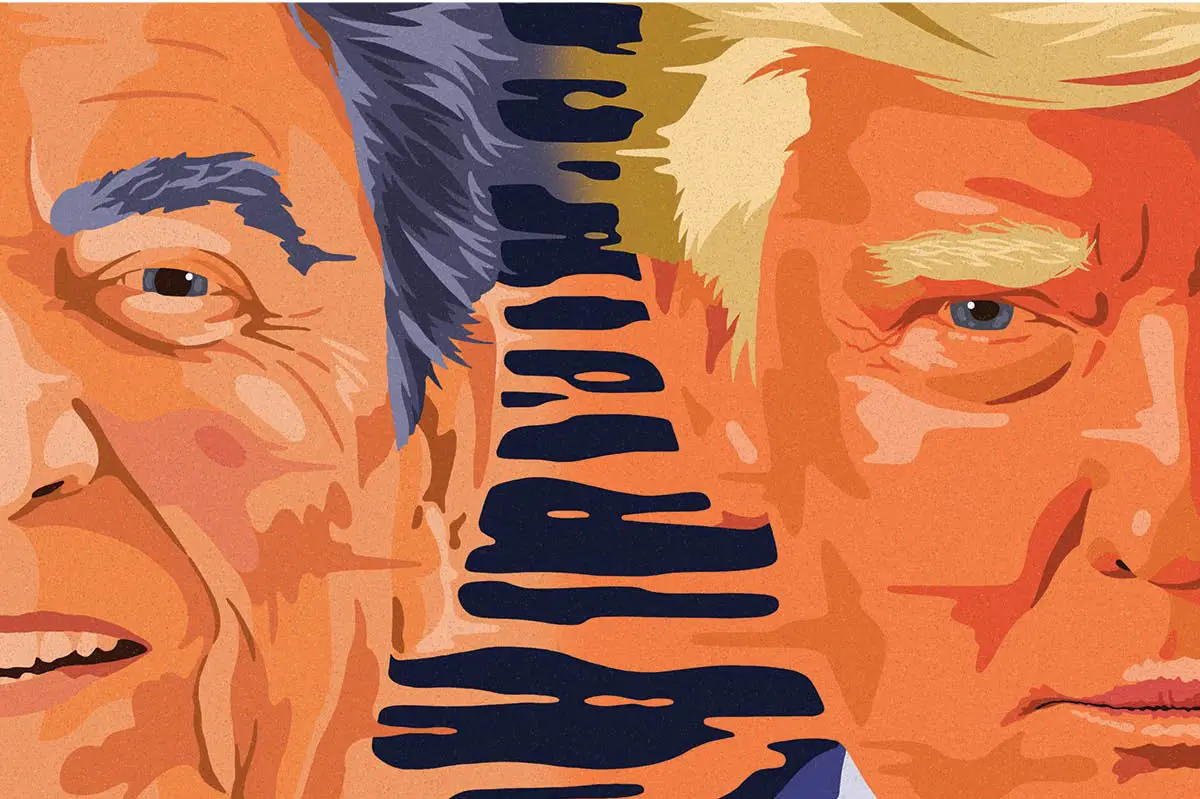Some of the more interesting political figures of our day — Tulsi Gabbard, Glenn Greenwald, Tucker Carlson — crossed the street to find new friends, but few in our history have ever switched teams with the dramatic flair of Karl Hess, the centenary of whose birth we will toast this May 25.
Born in Washington, DC to a beautiful switchboard operator and a rakish Filipino millionaire, Karl Hess quit school at fifteen and embarked on a career that turned into an anti-career. He was a police reporter, a Newsweek editor, a corporate flack, a Republican ghostwriter, and, ultimately, Barry Goldwater’s speechwriter and traveling companion during the Arizona senator’s 1964 presidential candidacy.
Then one day he looked in the mirror, asked the David Byrne-ish question, “My God, what have I done?” and chucked it all.
Karl grew a beard, donned a field jacket and took up welding. Looking like a gregarious Fidel Castro, he threw in with the New Left, arguing that if anti-communism had not warped the American Right, it “would today be near the New Left on most major issues.”
Through it all, the combat-booted, dope-smoking anarchist remained steadfast friends with Barry Goldwater, the John the Baptist of the Reagan Right. Hess even wrote speeches for the Arizonan’s successful 1968 campaign to reenter the Senate; Goldwater began one head-spinning address at Arizona State with the remarkable admission, “I have much in common with the anarchist wing of Students for a Democratic Society.”
Say what?
Mr. Conservative — Mr. “Ultra-Conservative” to the stenographers of the Time-Life media complex — professing solidarity with SDS, spearhead of the student-movement wing of the New Left?
Well, why not?
The keenest and most soulful president of SDS, Carl Oglesby of Akron, Ohio, represented those kids who wanted to end the draft, bring the troops home, renounce empire, decapitate the centralized state, and transfer power to the neighborhoods — attitudes deeply dyed in the American grain. Alas, these “prairie power” rebels ultimately lost out to the bomb-happy, rich-kid Weatherman faction as well as to the social-democratic weenies who would graduate from SDS into being permanent space-fillers in academe. (For a good history of the organization, see Kirkpatrick Sale’s seminal volume SDS, which has just been published in a fiftieth-anniversary edition.)
Hess also praised the Black Panthers as “decentralist and anti-statist at the neighborhood level,” though he regretted that its theoreticians and attention-hoggers were often Marxist-Leninist thugs. As with virtually every political movement, from feminism to Conservatism, Inc., the very worst people clawed their way to the top, which explains why Karl became a cheerful exponent of anti-politics and extreme decentralism. As he liked to say, Adolf Hitler as chancellor of Germany was a nightmare; Adolf Hitler at a town meeting would just be an asshole.
Goldwater’s late-Sixties musings to Hess would make idiocracy-media pinups like Joy Behar and Sean Hannity combust. The Arizona senator told his hippie buddy that the US and the Soviet Union were on a convergence course, and that one day Russia would be a freer society than a centralized and bureaucratically strangled United States. Appalled by the devitalizing center of 1960s politics embodied by establishment cogs like George Romney and Hubert Humphrey, Goldwater speculated, “When the histories are written, I’ll bet that the Old Right and the New Left are put down as having a lot in common and that the people in the middle will be the enemy.”
Maybe someday, Barry.
Karl Hess died April 22, 1994, the same day Richard Nixon’s name was forever scratched off the voting rolls. One man had spent his adult life lusting after, wielding, and then regretting his loss of political power; the other simply walked away from it. Zero living presidents attended Hess’s funeral.
Hess spent the last two decades of his life with his wife Therese outside Kearneysville, West Virginia, in a home built mostly of scavenged materials. His ambition was to be a good husband and neighbor.
After my repatriation from Washington, Karl wrote to me: “I suppose it is too much to hope for that you actually fell in love with someone up there. Or maybe had already fallen — or risen! The older I get (and I’m now, at sixty-seven, an official SENIOR, although still an intellectual juvenile) the more I appreciate the work of being in love as superior to anything else.”
Love. Gosh — what an impractical radical.
This article was originally published in The Spectator’s May 2023 World edition.
























